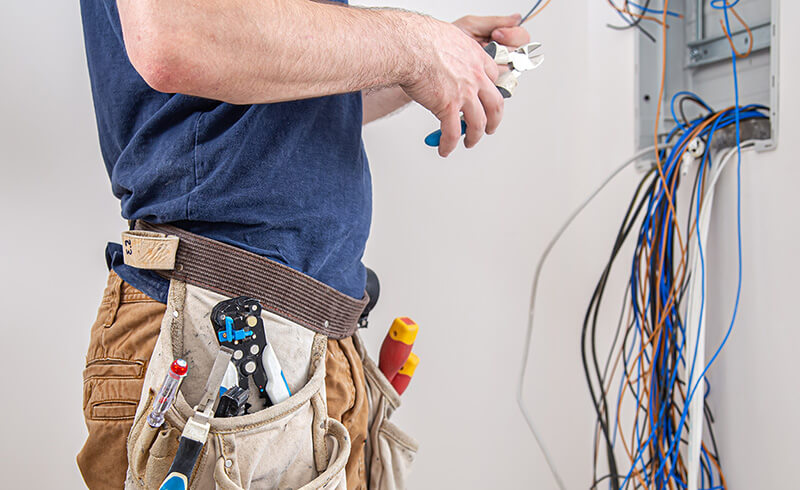Ensuring Safety and Efficiency: A Comprehensive Guide to Domestic Electrical Installation
Electricity is the lifeblood of our modern homes, powering everything from lights and appliances to entertainment systems and smart devices. While it provides unparalleled convenience, it also demands respect and attention to safety. Domestic electrical installation is a critical aspect of home maintenance that requires careful planning, professional expertise, and adherence to regulations. In this comprehensive guide, we will explore the key considerations for a safe and efficient domestic electrical installation.
**1. ** Understanding the Basics: Before diving into the installation process, it’s essential to have a basic understanding of electrical concepts. Learn about voltage, current, circuits, and safety protocols. Familiarize yourself with the electrical panel, circuit breakers, and the role of grounding in electrical systems.
**2. ** Safety First: Safety should always be the top priority when dealing with electricity. Invest in high-quality safety gear, such as gloves and goggles, and use insulated tools to prevent electric shocks. Make sure to turn off the power supply to the area you’re working on and double-check it with a voltage tester.
**3. ** Planning Your Installation: Careful planning is the foundation of a successful electrical installation. Determine your power needs, taking into account current usage and potential future requirements. Plan the placement of outlets, switches, and lighting fixtures strategically to ensure convenience and efficiency.
**4. ** Choosing the Right Wiring and Components: Selecting the appropriate wiring and components is crucial for the safety and longevity of your electrical installation. Consult with a professional to choose the right wire gauge, type, and insulation material. Invest in high-quality outlets, switches, and circuit breakers to prevent overheating and electrical fires.
**5. ** Professional Installation vs. DIY: While there are minor electrical tasks you can handle on your own, complex installations require the expertise of a licensed electrician. Professional electricians have the knowledge and experience to ensure that your electrical system is installed correctly, following local regulations and safety standards.
**6. ** Adhering to Regulations: Every region has specific electrical codes and regulations that must be followed during installation. These regulations are in place to guarantee the safety of residents. Familiarize yourself with the local electrical codes or consult a professional to ensure your installation complies with all legal requirements.
**7. ** Regular Maintenance and Inspections: Even a well-installed electrical system requires regular maintenance and occasional inspections. Schedule periodic checks to identify and rectify any issues promptly. Addressing problems early can prevent major electrical failures and ensure the safety of your home and family.
**8. ** Energy Efficiency: Consider integrating energy-efficient solutions into your electrical installation. LED lighting, smart thermostats, and energy-efficient appliances can not only reduce your electricity bills but also contribute to a more sustainable future.
